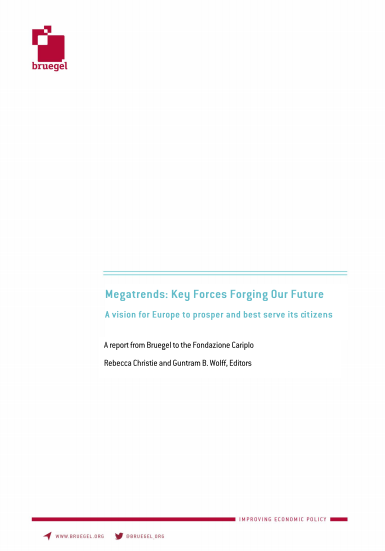Book/Special report
Megatrends: Key Forces Forging Our Future
A vision for Europe to prosper and best serve its citizens
The global economy in the 21st century requires European leadership. Two decades of monetary union have underpinned a period of intense technological and societal change. To build on its achievements and lay the groundwork for future prosperity, Europe must step into a new leadership role that will allow it to shape global forces alongside peers in North America and Asia. Doing this effectively will require understanding and adapting to the fundamental forces at work.
Bruegel scholars have identified a series of overarching challenges that will touch every element of the European project along with economies and societies of Europe. The long-lasting effects of these ‘megatrends’ must be considered comprehensively. It’s time for new ideas that offer strategic solutions, to ensure that our societies continue to thrive.









